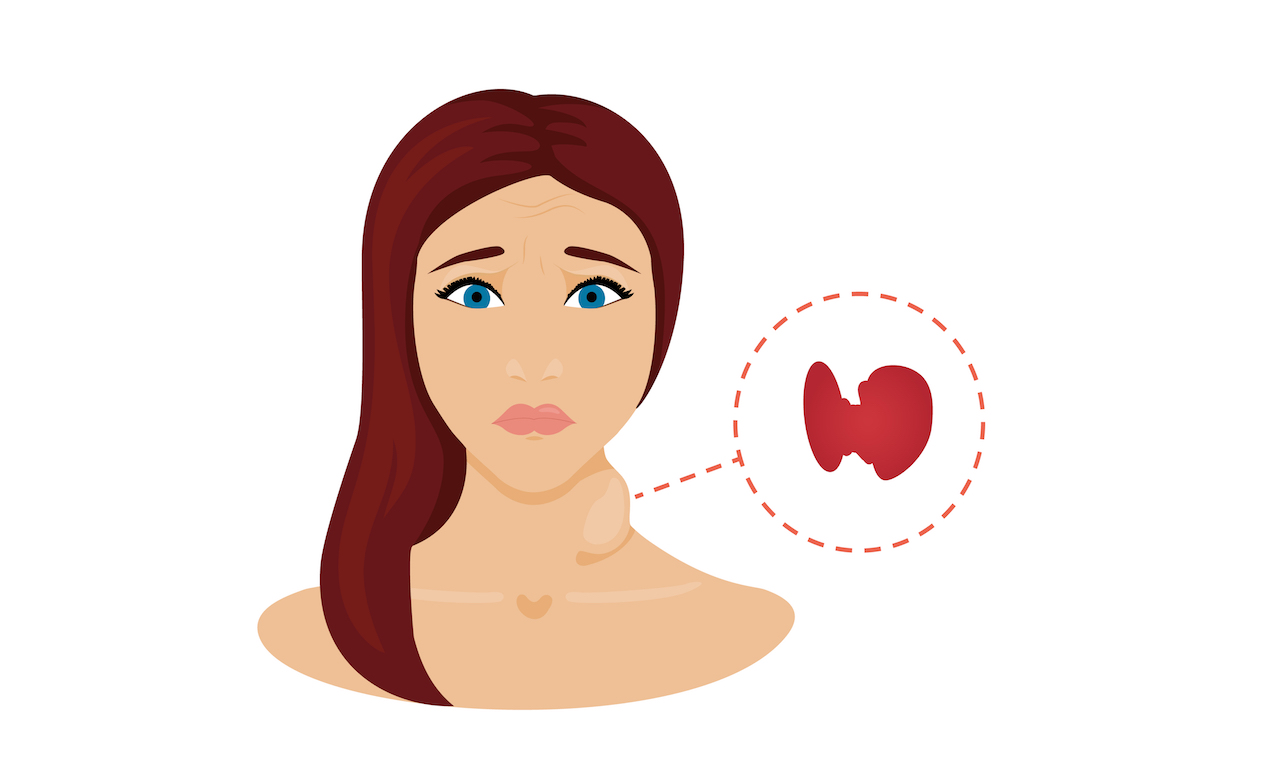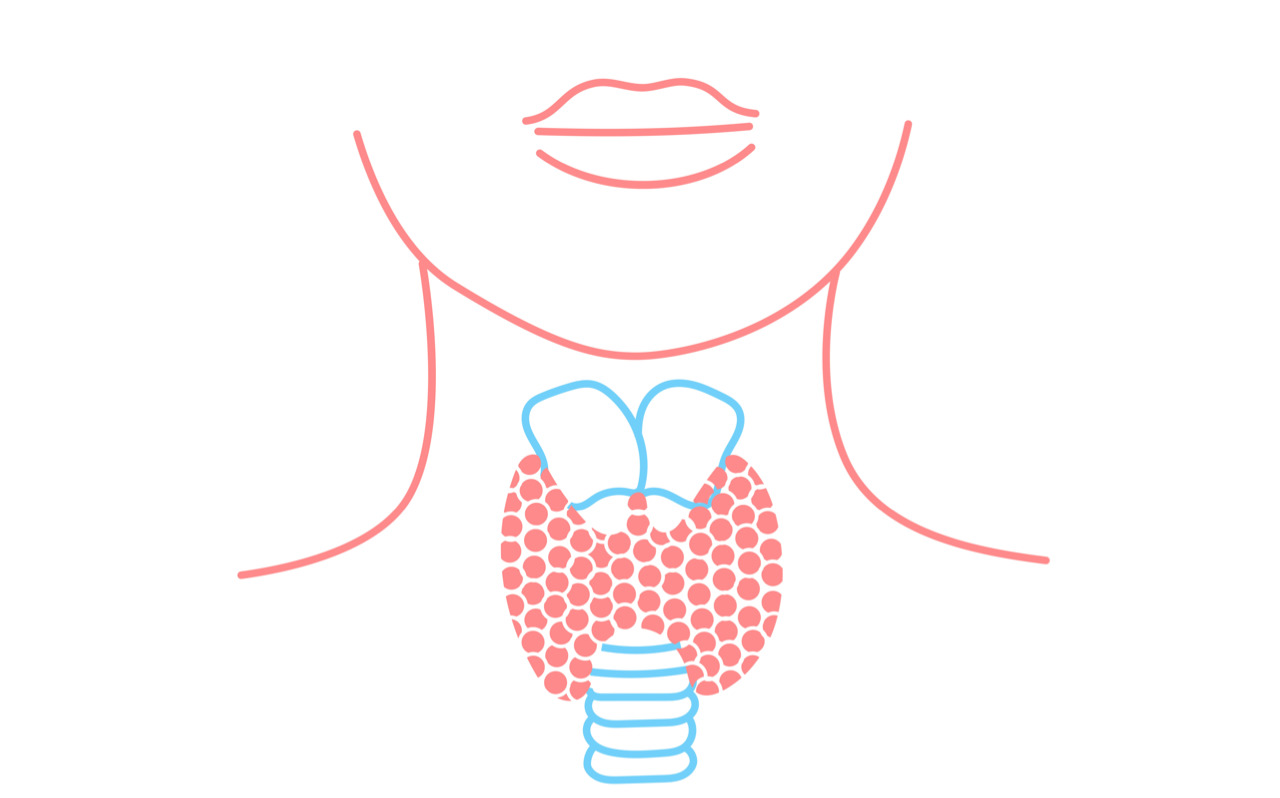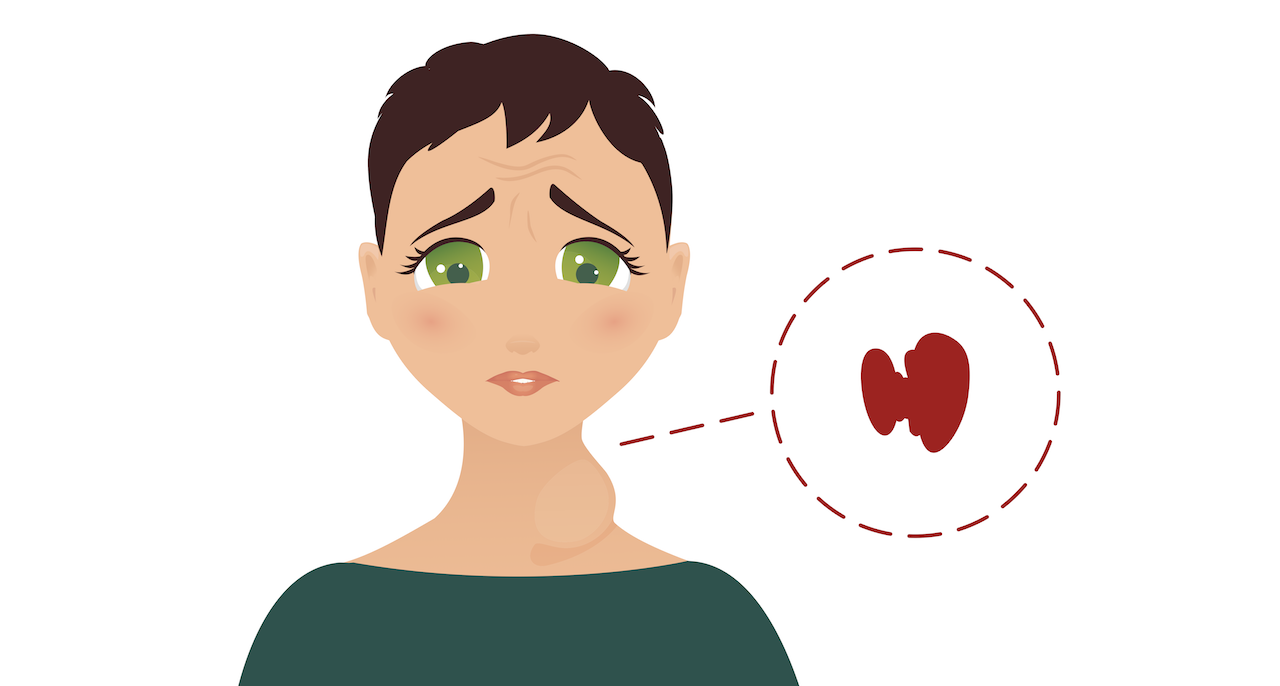It’s a funny-sounding word, but a goiter can have a real impact on your health. A goiter is an abnormal growth on your thyroid gland. The lump is an enlargement of the butterfly-shaped gland (your thyroid) at the base of your neck; which will move up and down when you swallow.
Your thyroid produces two important hormones:
- Triiodothyronine (T3)
- Thyroxine (T4)
These thyroid hormones have a major impact on:
- Growth
- Heartbeat
- Immune regulation in the intestine
- The use of oxygen and energy
- The use of vitamins, carbohydrates, proteins, fats, electrolytes, and water
- Heat production
- Fertility
So, the presence of a goiter means that there’s some health condition that has led to the abnormal enlargement of the thyroid gland.
It could be an overproduction of hormones (hyperthyroidism), underproduction (hypothyroidism) or normal production (euthyroidism).
What’s causing the goiter?
Anyone can develop goiter, but your risk increases with age. Women over 40 are at a greater risk, as well as those who have a family history of the condition. When the gland isn’t making enough thyroid hormone, it reacts by getting bigger. One of the common causes of a goiter is an iodine deficiency.
Iodine is a trace mineral; meaning that it’s a micro mineral that you only need in tiny amounts. But your body does need it to maintain thyroid function.
According to the American Thyroid Association, the main function of the thyroid gland is to use iodine from the blood to make thyroid hormone. So, the gland can’t make enough thyroid hormone if there’s not enough iodine present.
An iodine deficiency leads to hypothyroidism. The pituitary gland in the brain senses the thyroid hormone level is too low and sends a signal to the thyroid. The signal, called thyroid stimulating hormone (TSH), stimulates the thyroid to produce thyroid hormone and grow in size, leaving you with a goiter.
Causes of a goiter
- An underactive thyroid gland (hypothyroidism).
- An overactive thyroid gland (hyperthyroidism).
- Lack of iodine.
- The body’s immune system attacking the thyroid gland (autoimmune problem).
- Hormone changes during puberty, pregnancy or menopause.
- An inflamed thyroid gland (thyroiditis).
- A history of radiation treatment to the neck or chest area.
- Nodules or cysts within the thyroid.
Symptoms include:
- Difficulty swallowing.
- A tight feeling in your throat.
- Difficulty breathing.
- Coughing
- Hoarseness
A complicated case of a large goiter can put pressure on the windpipe (trachea) and food tube (oesophagus). A large goiter can cause difficulties in breathing, especially when you’re lying flat on your back. Swallowing solid food can also be a challenge and it may cause pain in the thyroid area.
When to see your doctor
If you think you have goiter, it’s time to see your doctor. Your neck will be examined to check whether your thyroid gland is swollen, and a thyroid function test may be done to see how well your thyroid gland is functioning. The thyroid function test will measure the level of certain hormones in your blood. It will show whether you have an under-active or overactive thyroid, both of which are associated with goiter.
If your doctor finds it necessary, he may refer you to a specialist for further tests or treatment.




